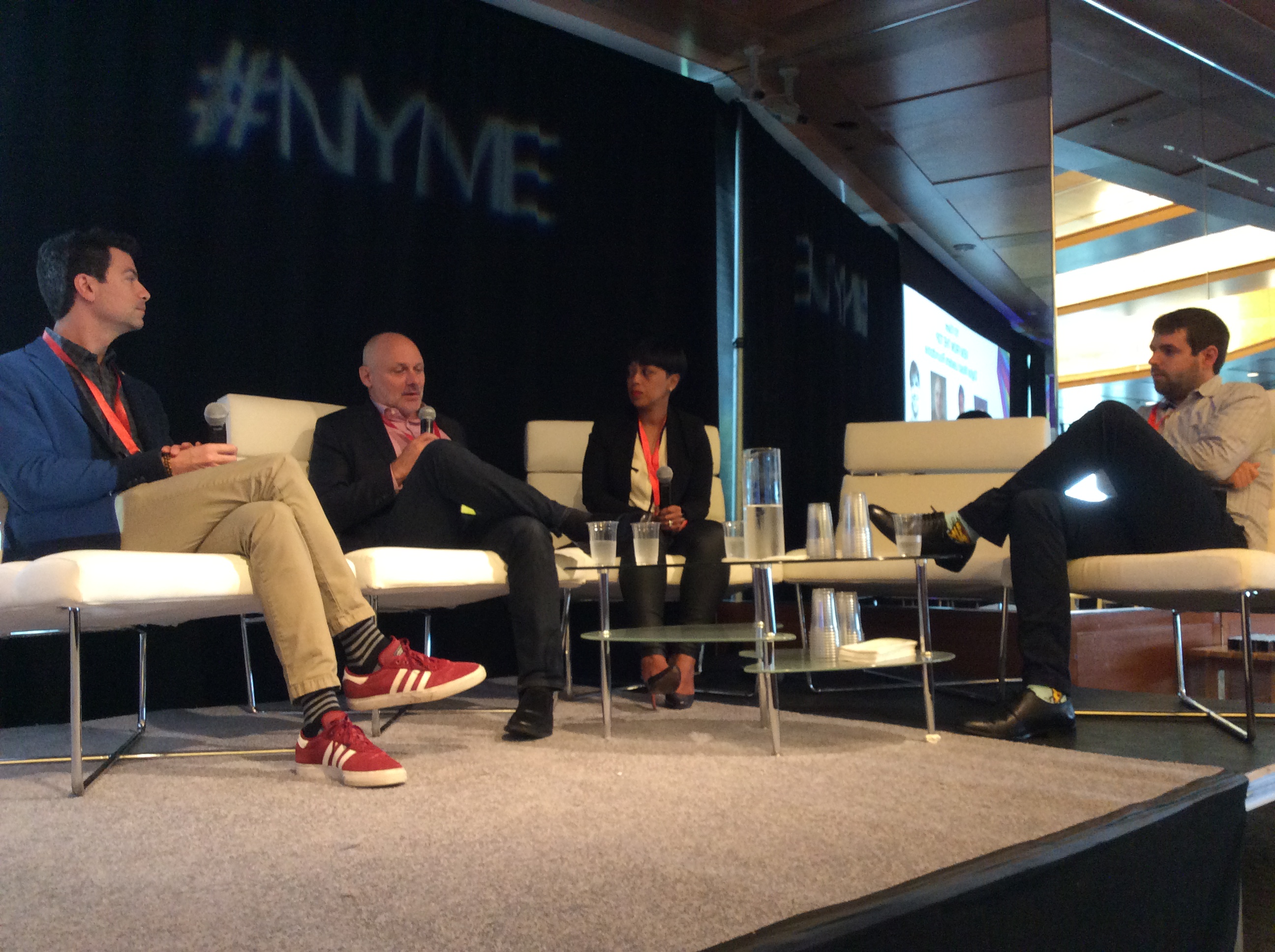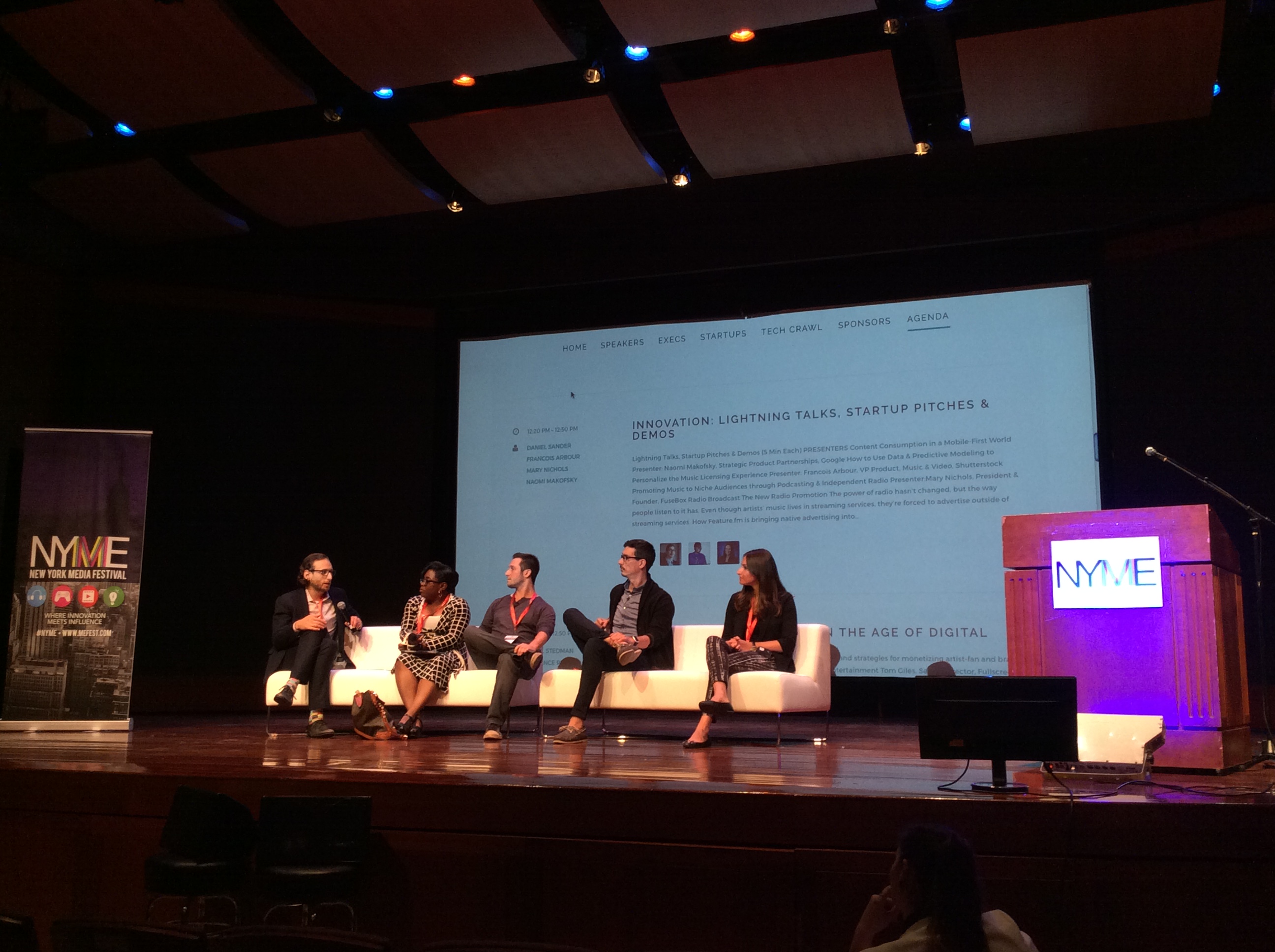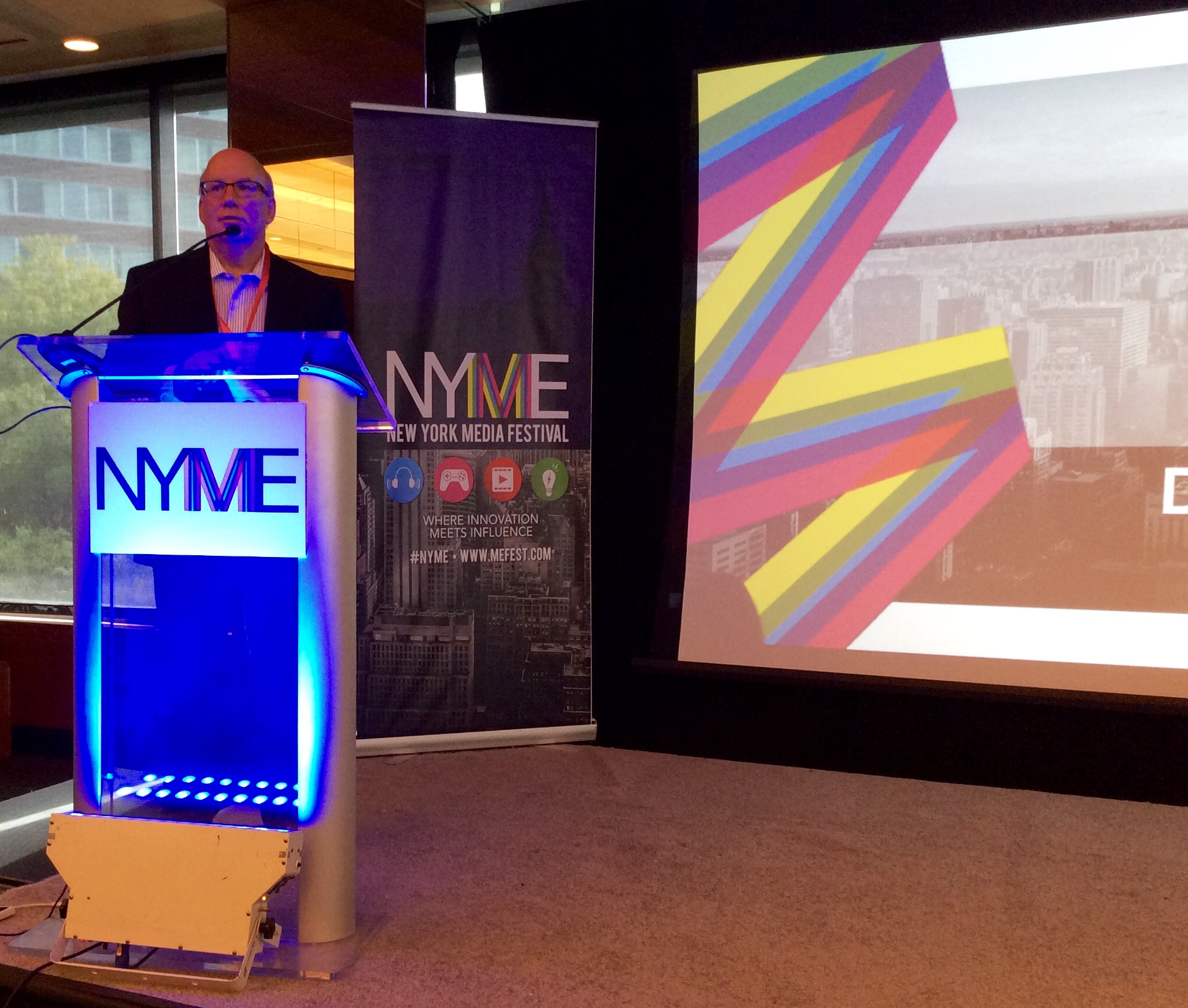
Innovators and influencers in the music, TV, and gaming industries recently gathered at the Museum of Jewish Heritage for the New York Media Festival. The festival is a three-day event that features conferences, debates, business pitches and nighttime entertainment.
I attended the first event, the Digital Music Forum.
The event started with a talk about playlisting from Russ Crupnick, managing partner at MusicWatch, a company that researches and analyzes music industry trends.
According to Crupnick, 30 percent of the music-consuming population obtains music via streaming platforms like Spotify and Tidal. Through these platforms, 90 percent of users create playlists.

Crupnick—who went through stacks of vinyl records and created playlists when he was in high school—called music “comfort food” for the soul.
Crupnick said that playlists are important for users to discover and rediscover music. He said that people love playlists because they are predetermined, customized and good for setting desired moods.
After Crupnick’s speech was the Digital Music Leaders Roundtable, a discussion panel of industry heavyweights moderated by Jason Lipshutz, deputy editor at Fuse TV. Panelists included Owen Grover, EVP & general manager of content development and distribution at iHeartMedia, Kathy Baker, SVP of digital marketing at Columbia Records/Sony Music Entertainment, and Alexander Kisch, EVP of business development and affairs at Vevo.

Lipshutz asked the panelists about the future of the radio industry. Baker and Kisch said that radio should be made more accessible to consumers and predicted that subscription-based radio will emerge to compete with iTunes and Spotify.
“I think things will settle down in the next two years, hopefully and we’ll come to an agreement about our content and where it lives,” Baker said.
The panel ubiquitously agreed that the industry must adapt to new technologies and prioritize consumer demand. They stressed that listeners are the most vital assets to curating radio content.
“There have always been tastemakers,” Grover said. “The way in which you proliferate that community to your friends—that’s changed.”

Kisch said there will be more platforms and more consumers. “Radio will continue to be relevant, but in a different way,” he said.
According to Grover, the “best thing we can do is to be students of consumer behavior.”
The panel was followed by a fireside chat led by Stephen Bryan, chief content officer at SoundCloud. Bryan discussed the streaming company’s prevalence and uniqueness in the music field.
Unlike other companies, SoundCloud works with artists to cater to their needs and create a level playing field, Bryan said. The site enables artists of any caliber or genre to post their music for free—which allows a mix of traditional and unreleased music.
Bryan considers SoundCloud a platform “built by artists, for artists,” and says it creates a “raw, yet authentic experience between the artists and their fans.”
After Bryan’s energetic talk, the audience was given a 15-minute break to refresh and network. Then, attendees separated into different rooms for the remainder of the day’s overlapping sessions.
I went downstairs for the innovation summit to hear presentations about advancements in virtual reality, search engines, and content licensing.
Mike Gold, cofounder and CEO of Holojam, a mobile software program, moderated the event. Speakers included Naomi Makofsky, Francois Arbour, Mary Nichols and Daniel Sander.
Makofsky, who works with strategic product partnerships at Google, spoke about strategic ways for consumers to search for music on their phones. According to Makovsky, Google is creating an AMP—an “accelerated mobile pages platform”—that will allow consumers to load mobile-internet content at lightning speed.
Makofsky said the goal of the platform is to load pages so fast that consumers will no longer be tempted to abandon the browser. “We live online and mobile has greatly influenced the way we make these decisions,” Makofsky said.
Francois Arbour, VP of product, music and video at Shutterstock, discussed his new platform, PremiumBeat, which uses data to personalize the music-licensing search process.
Through PremiumBeat, customers will be able to search licensed music that is individually tailored to their tastes. The company will extrapolate user information—like the songs listeners skip and play—to formulate the results.
Mary Nichols, president and founder of FuseBox Radio Broadcast, spoke about the importance of podcasting to music listeners. She said that podcasts help spread music by “word-of-mouth,” a technique that is most common among listeners ages 12-24.
According to Nichols, podcasts are essential to promote artists and are a strategic career-move. Nichols described the podcasting industry as the “internet streets.”
The final speaker was Dan Sander, head of market development at Feature.fm. Sander, a former musician, has created a radio promotion tool that helps promote indie artists.
Sander said that 91 percent of artists are considered “undiscovered,” and his marketing platform intends to change that. Any artist can fill out an online form with information such as their name, genre and a link to their song, and it will be featured on selected radio stations.
Sander explained that the ads will be tailored to consumer preferences, and genres of music they see on the ad banner will match the radio station they listen to. These recommendations will give fans access to bands they might not discover on their own.
According to Sander, “The power of radio hasn’t changed, but the way people listen to it has.”
This statement could be said for the entire digital music forum. The future of radio and music streaming may be uncertain—but as every speaker touched on—listeners will be the defining factor that changes the industry.
Image Credit: CC by Joe Haupt



